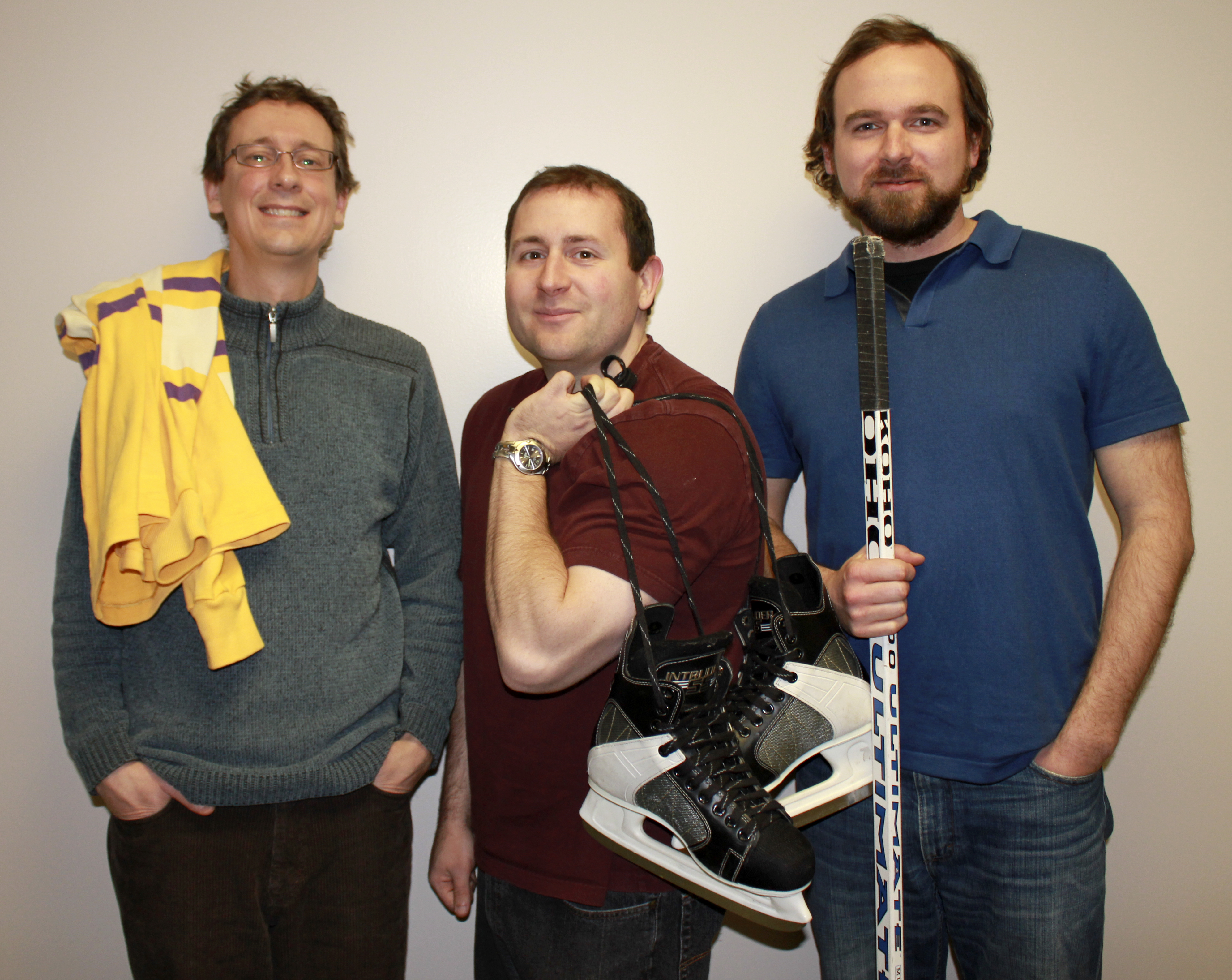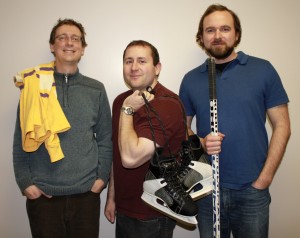Measuring climate change with backyard hockey rinks


Glaciers are melting, polar bears are dying and migratory behaviours of birds are changing.
These are all interesting aspects about climate change, but Robert McLeman, a geography and environmental studies professor at Wilfrid Laurier University, worries they will only be regarded by the general public as more relatable facts rather than the harsh reality.
“When we talk about climate change, we often talk about things like polar bears and receding glaciers,” he said.
“But most of us have never seen a polar bear or glaciers, it doesn’t really connect to us.”
This widespread disconnect is what McLeman — along with fellow WLU professor Colin Robertson and masters student Haydn Lawrence — is trying to address with their new project, RinkWatch.
Launched just last Tuesday, rinkwatch.org is a website where Canadians with backyard or outdoor rinks can regularly record and submit information on their skating conditions.
“We’ve seen research suggesting that climate change is going to reduce the amount of time we have outdoors to go skating,” said McLeman.
“And we thought, ‘hey, let’s get them interested in climate change and climate research by getting them to look at their own backyards and how it’s being affected by changes in weather conditions’.”
The website works by having individuals pinning their rink location on a Google map, then submitting the skating conditions of their rink once a week.
Over a long period of time, this information can be used to track the changes in variability in winter climate conditions.
There are already dozens of rinks registered and McLeman hopes to further develop the interactivity.
“[There’s going to be] a community of other people out there who’s also interested in the same thing,” said McLeman.
“So as we build our user community, we’re going to try to build some sort of social networking around it so people start to talk to other Rink Watchers.”
McLeman believes this can be a fun science project for kids, which will allow them to connect with nature in the process.
He thinks this is important because kids and young adults are the ones who are going to have to deal with the consequences of climate change head on, so they need to be more personally engaged.
“Right now, people say, ‘Polar bears are dying in the arctic — how terrible,’ but they don’t follow it up with, ‘What can I do about it?’” he said.
“But if people take an interest in changes in their backyard, maybe they’ll say, ‘What can I do about it’,” continued McLeman.
This is what McLeman hopes to get out of Rink Watch — genuine concern and interest in climate change.
The impact will remain to be seen in the coming years as the website’s community grows in number.

